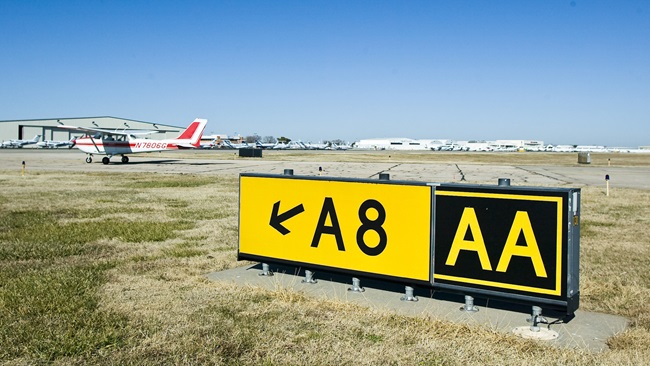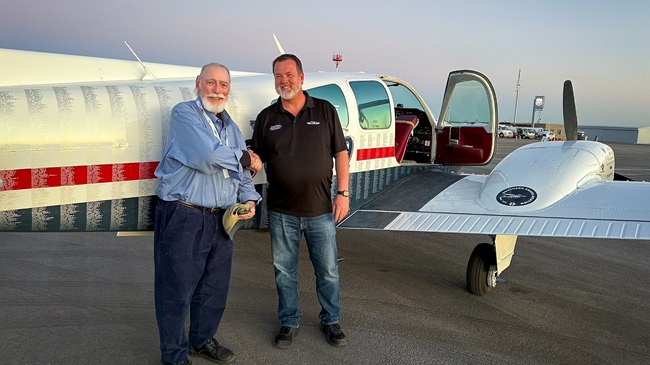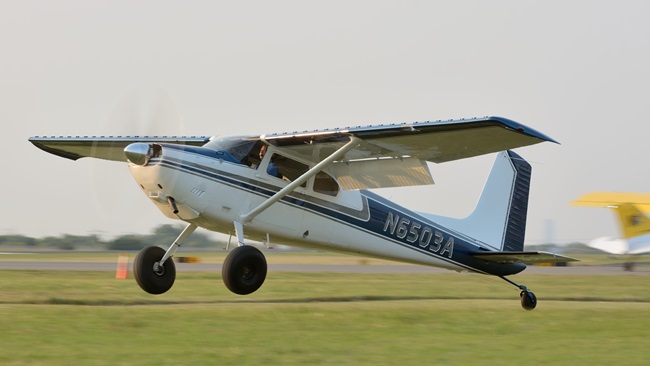Chicago’s Tuskegee Next gains momentum
At-risk youth earn private pilot certificates
Graduates of the eight-week Tuskegee Next summer flight program for at-risk teens celebrated earning nearly a dozen private pilot certificates at Chicago’s Illinois Aviation Academy during the fourth year of the program founded by Steve Davis, chairman of the DuPage Airport Authority.
“We should have 10 pilots by next week,” said Executive Director Sanura Young during a break from scheduling checkrides for 10 student pilots ages 16 to 20. She noted that the seven men and three women were planning to turn their aviation introductions into lifelong careers. “Each and every one wants to be a pilot in some form,” she continued. “They say want to be cargo pilots, U.S. Air Force fighter pilots, or commercial pilots.”
The youth program began in 2015 with eight students who coached each other and worked together as a team “to instill confidence and poise,” Davis says in an introductory video posted on the website. “Kids that have never driven a car, can pilot an airplane, and when they get out of that airplane it is really worth it to see the joy in their eyes.”
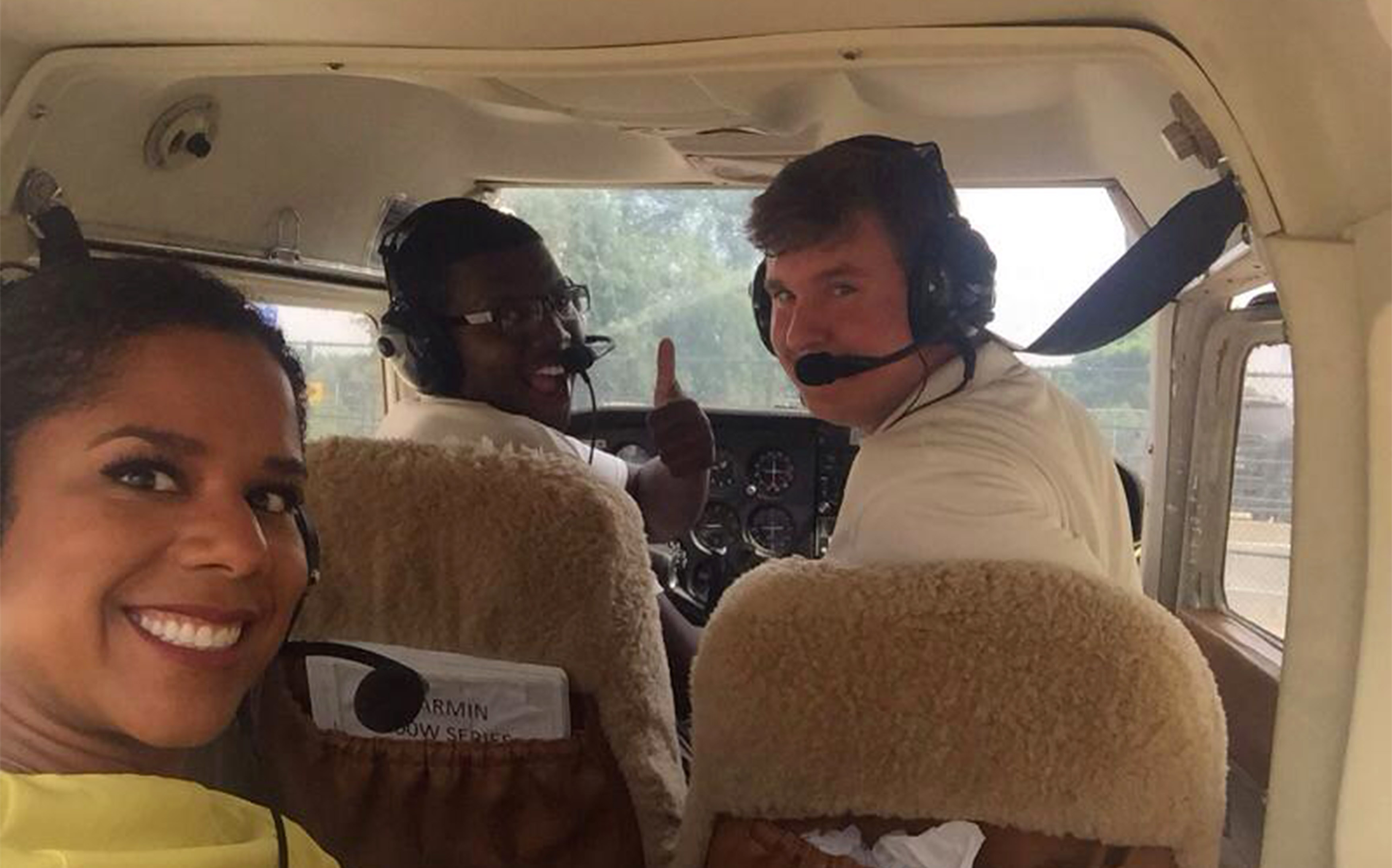
The goal is to graduate 100 pilots by 2025 who will then be able to “literally soar into the future as pilots” or to accomplish things that might be “beyond their imagination,” Davis added.
Though it was initially just for Chicago-area residents, Young explained that the free, fully immersive nonprofit program “ballooned nationally” in 2018 because organizers got better at getting the word out. In addition to students from Illinois, Tuskegee Next instructors recently taught students from Alabama, Pennsylvania, and the U.S. Virgin Islands.
Robert Allison, a professional pilot who operates from DuPage Airport which is under the Chicago Class B shelf west of the city, said that a $25,000 scholarship donation from American Airlines would be “life-changing” for the students currently earning their private pilot certificates and following in the footsteps of 22 previous graduates. "The program went 10-for-10 this summer," he noted, adding that their success was a testament to the quality of instruction from Illinois Aviation Academy chief pilot Scott Malcolm. "Getting them to a checkride in two months was incredible."
“We’re hitting our stride,” said Malcolm. “The students all have a passion for aviation and it shows because they gave up their summer for it. When I asked them about vacation plans, they all said, ‘This is my vacation.’ What a great, great group of cadets, I’m really proud of them.”
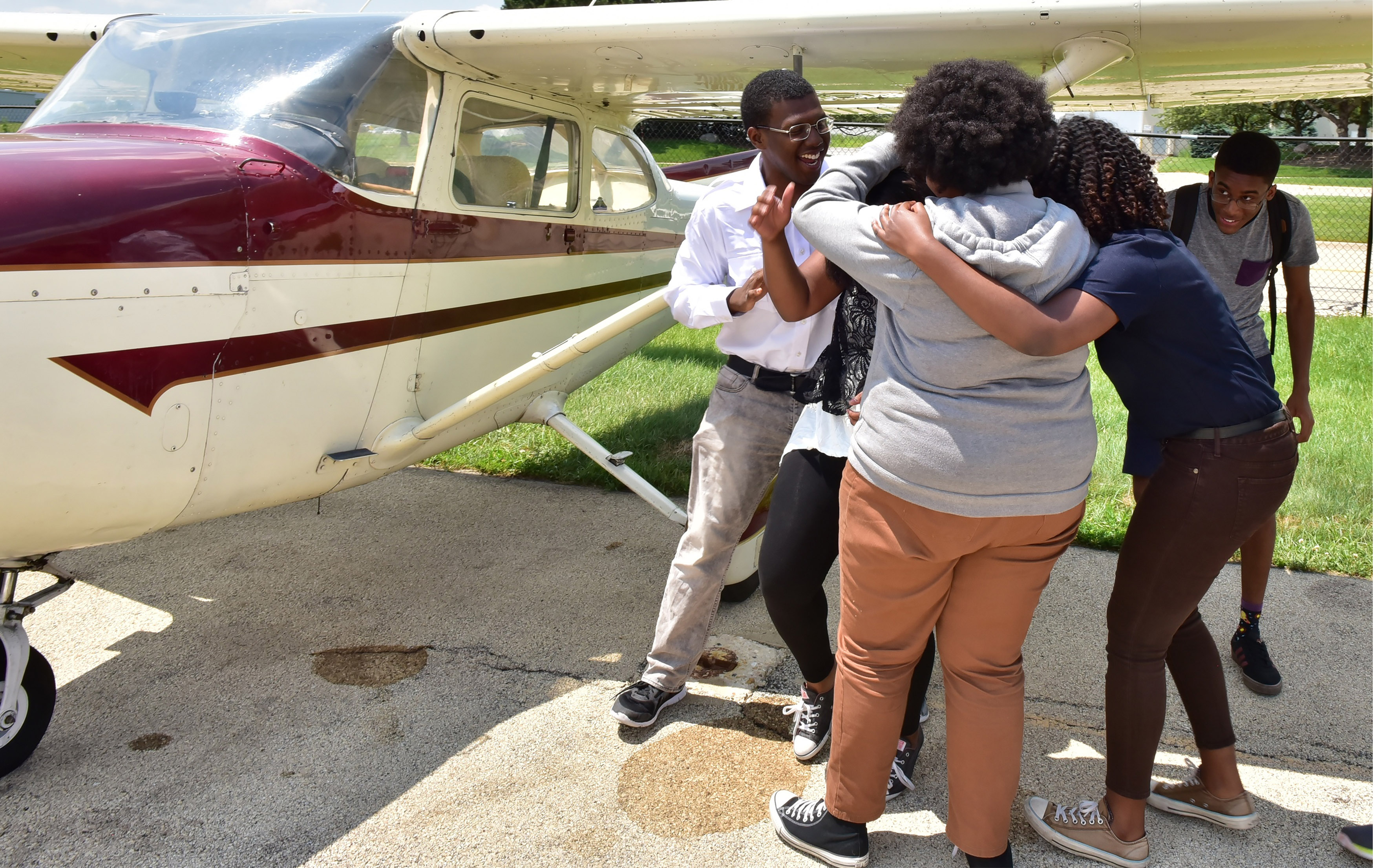
The concept for success utilizes a three-tiered approach by providing role models and a clear path toward aviation careers through flight training, life skills, and educational assistance. Besides intensive flight training at DuPage, campers are exposed to aerospace education options and accompanying careers, a mentorship program that pairs professional aviators with students, and community service projects.
Although students get a large dose of science, technology, engineering, and math (STEM) concepts, the camping experience is not all work and no play. They also participate in EAA Young Eagles rallies and flights, ACE camps, activities at Chicago’s busy O’Hare International Airport, and other aviation adventures.
Young said the nonprofit recently shifted from constantly performing in “execution mode” to taking a long-range approach for underserved youth nationwide. Applications for 2019 are accepted from Aug. 31 through Dec. 31, and the selection process begins in March 2019.
Young emphasized that youth can register to “attend the program at no cost [to them] and we target at-risk teens. We fundraise all year and we beg a lot. “If these kids show up, we won’t let them fail,” she vowed.
AOPA has also recognized the importance of growing the pilot population and the association put several programs in place to ensure a robust future for aviators. The goal of AOPA’s You Can Fly High School Initiative is to help build and sustain aviation-based STEM programs and provide a quality workforce to the aviation industry.



